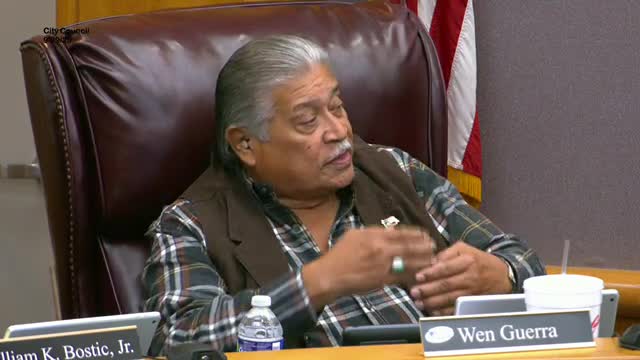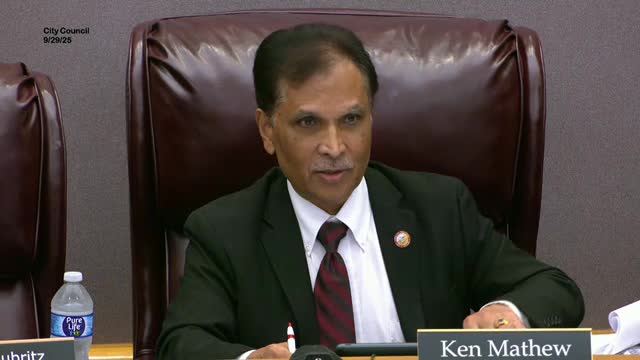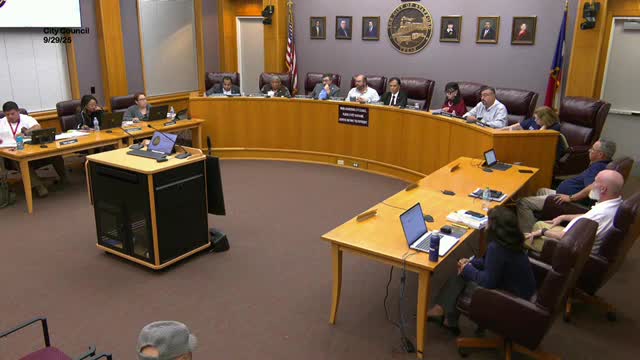Article not found
This article is no longer available. But don't worry—we've gathered other articles that discuss the same topic.

Council hears Stafford Economic Development Corporation budget; members request project detail

Stafford council adopts 2025–26 budget, adds $750,000 for residential streets and 2% COLA; vote 6-1

